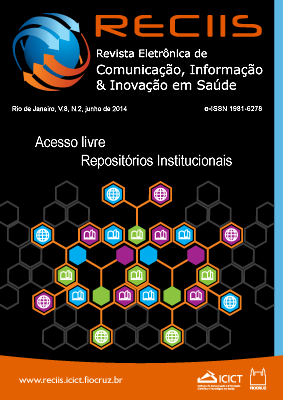The new settings of Open Access: Challenges and proposals
DOI:
https://doi.org/10.3395/reciis.v8i2.447Keywords:
Open access, Finch Report, Mandatory policiesAbstract
The adoption of Finch Report recommendation as a standard to open Aaccess by the British Government was a huge stepback to the Open Access Movement. The Finch model prioritizes the gold hybrid open access as the best strategy to immediate access to scientific production based on authors' payment for article processing charges to publishers of scientific journals. Acoording to Harnad1 the Finch Report recommendations affect, in a perverse way, the green open access, main strategy of open access, due to the role of repositories in this model would be restricted to long period of embargo delaying the possibility of immediate access. To understand the scope and implications of this new context, the present article aims to present the new settings for the open access from main elements of the Finch Report directly affecting open access identifying its main challenges. The study was based on documentary research on the original texts of the Finch Report and interviews and texts by Steven Harnad.Downloads
Published
How to Cite
Issue
Section
License
Author’s rights: The author retains unrestricted rights over his work.
Rights to reuse: Reciis adopts the Creative Commons License, CC BY-NC non-commercial attribution according to the Policy on Open Access to Knowledge by Oswaldo Cruz Foundation. With this license, access, download, copy, print, share, reuse, and distribution of articles is allowed, provided that it is for non-commercial use and with source citation, granting proper authorship credits and reference to Reciis. In such cases, no permission is required from the authors or editors.
Rights of authors’s deposit / self-archiving: The authors are encouraged to deposit the published version, along with the link of their article in Reciis, in institutional repositories.












